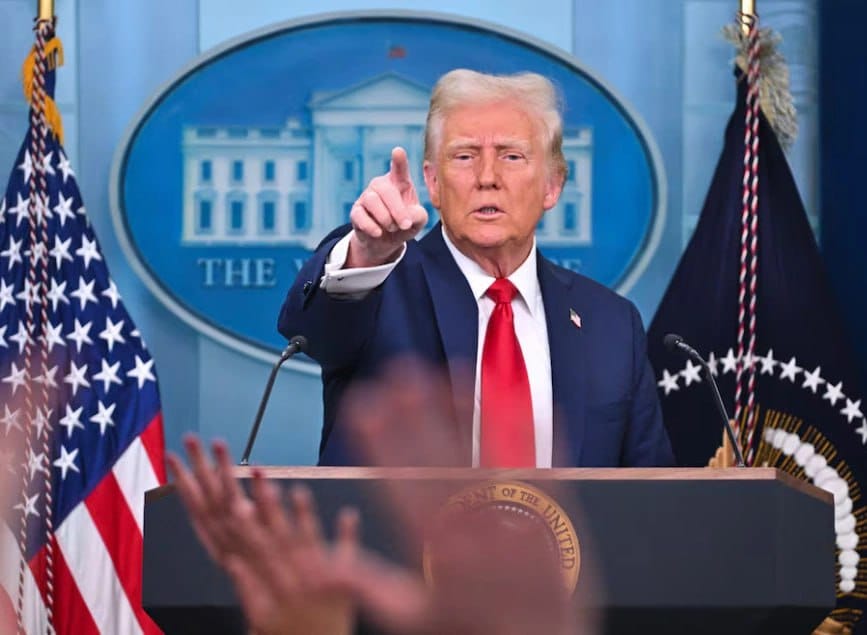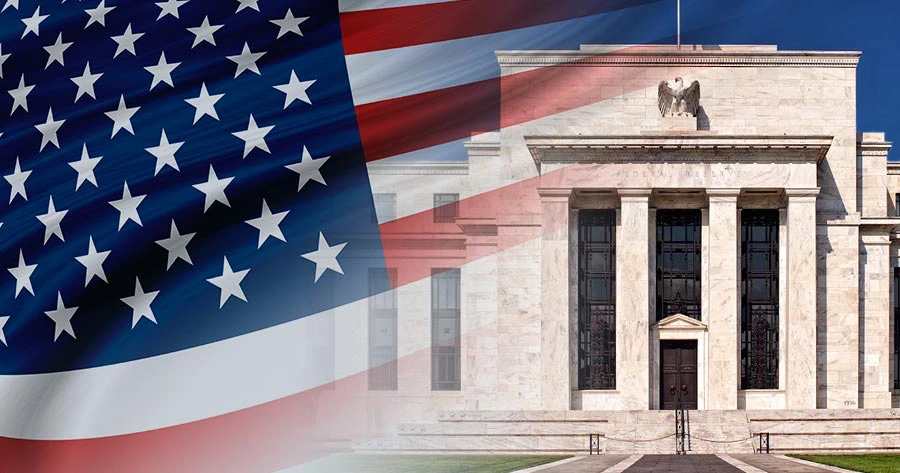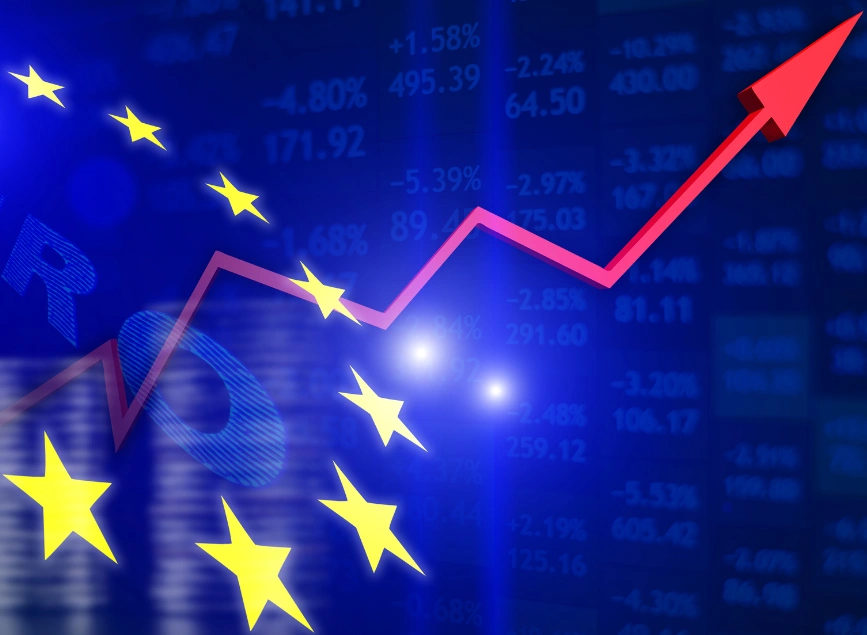
Global Markets Tumble with Trump’s Tariffs Shake
Financial markets worldwide have reacted sharply to the Trump’s Tariffs Shake, sparking fears of escalating trade tensions. The new measures include:
- A 25% tariff on imports from Mexico and Canada
- A 10% increase in tariffs on Chinese imports, effective Tuesday
This move has triggered a widespread sell-off in global equities, intensifying concerns about a looming trade war.
Market Reaction to Trump’s Tariffs Shake
U.S. Markets:
- Nasdaq Composite: Down 2.8%
- S&P 500: Down 2.1%
- Dow Jones Industrial Average: Opened 2.1% lower
Asian Markets:
- Taiwan Stock Exchange: Plunged over 5%
- Nikkei 225 (Japan) & KOSPI (South Korea): Declined around 3%
Oil Prices:
- WTI crude rose 1.8%, trading near $74 per barrel
U.S. Dollar Surges as Global Currencies Weaken
The tariff announcement propelled the U.S. dollar to multi-year highs as investors sought safe-haven assets:
- Mexican Peso (MXN/USD): Fell 2.3%, surpassing 21 MXN for the first time since July 2022
- Euro (EUR/USD): Declined 2.3% to $1.0125, its weakest level since November 2022
- Canadian Dollar (CAD/USD): The U.S. dollar climbed 1.4% to 1.4755 CAD, a level last seen in 2003
Gold Declines Despite Mounting Trade Tensions
Gold (XAU/USD) retreated to $2,770 per ounce, pressured by the strengthening dollar.
Key Factors Driving Gold Lower:
- Stronger Dollar & Rate Hike Expectations: A rising dollar and the prospect of prolonged high interest rates have dampened demand for gold.
- Profit-Taking: With gold recently reaching record highs, some investors are locking in gains.
What’s Next for Global Markets?
- Escalating Trade Disputes: Canada and Mexico have vowed retaliatory measures, while China plans to challenge the tariffs at the WTO.
- Equity Market Pressure: Investors fear these tariffs will erode corporate profits and slow economic growth.
- Strengthening U.S. Dollar: While a strong dollar enhances purchasing power domestically, it poses challenges for American exporters and emerging markets.
Read More: How to Determine if You Can Become a Trader
Why a Stronger Dollar Matters
What’s Driving the Dollar Higher?
- Flight to Safety: In times of uncertainty, investors flock to the U.S. dollar.
- Higher U.S. Interest Rates: The Federal Reserve’s stance on maintaining elevated rates is making dollar-denominated assets more attractive.
- Weakness in Other Currencies: As the euro, peso, and CAD decline, the dollar gains strength.
Implications of a Stronger Dollar:
- Reduced U.S. Export Competitiveness: American goods become more expensive overseas, impacting global demand.
- Emerging Market Struggles: Countries with dollar-denominated debt face increased repayment costs.
- Downward Pressure on Commodities: Since commodities like gold and oil are priced in dollars, a stronger dollar makes them more expensive for foreign buyers, dampening demand.
Conclusion: Navigating Market Volatility in Trump’s Tariffs Shake
Trump’s aggressive tariff strategy is fueling economic uncertainty, driving sharp fluctuations in global markets, strengthening the U.S. dollar, and putting pressure on other major currencies. Investors should remain vigilant, closely tracking trade developments, monetary policy shifts, and market trends to navigate the unfolding volatility.
Share
Hot topics

Federal Reserve’s Challenges to Trump’s New Policies
As the Federal Reserve Open Market Committee (FOMC) prepares for its upcoming meeting, all eyes are on how the Fed will respond to Donald Trump’s latest economic policies. With the...
Read more




Submit comment
Your email address will not be published. Required fields are marked *